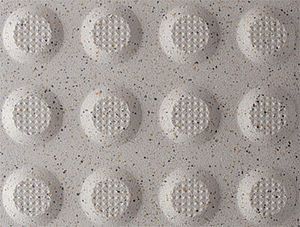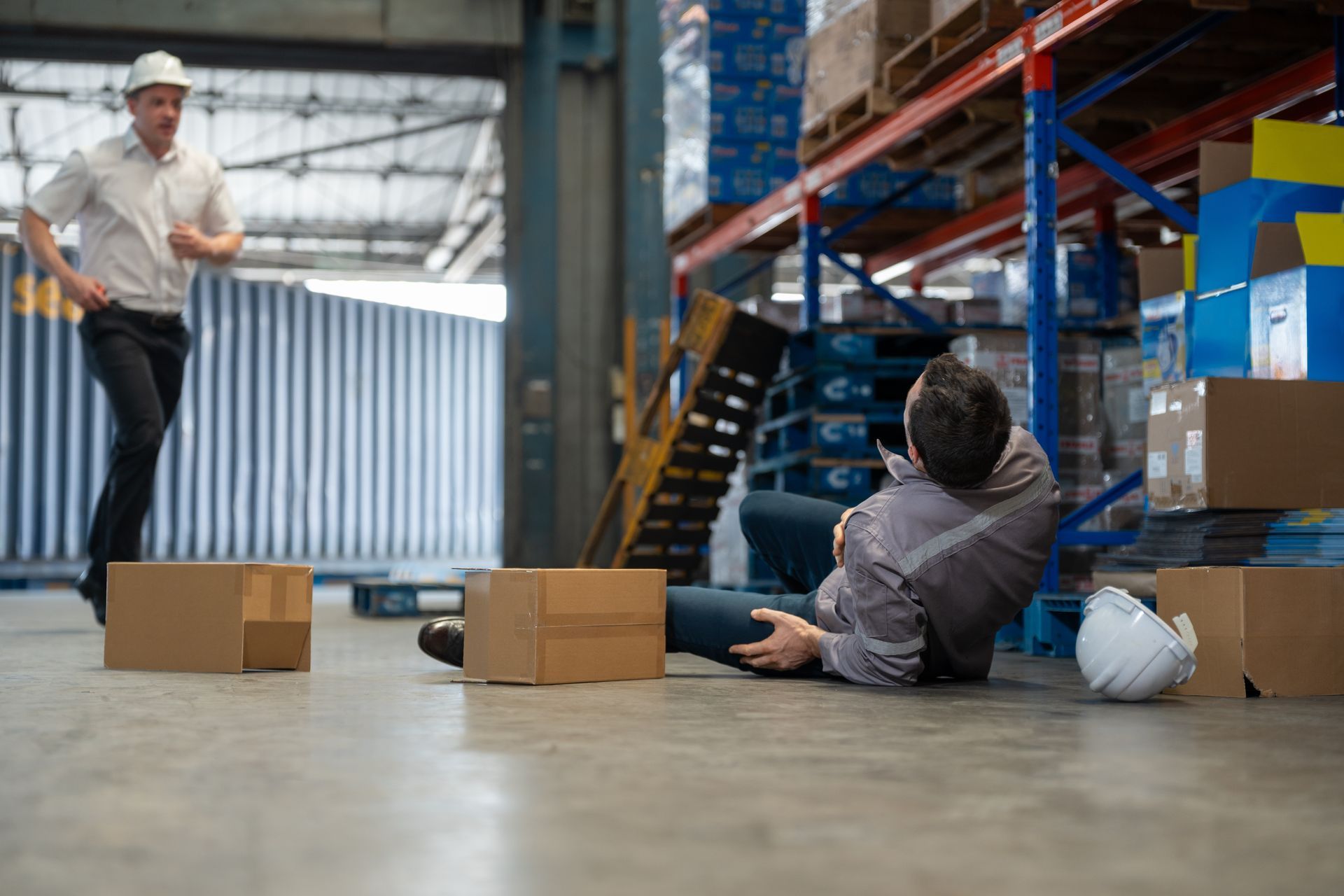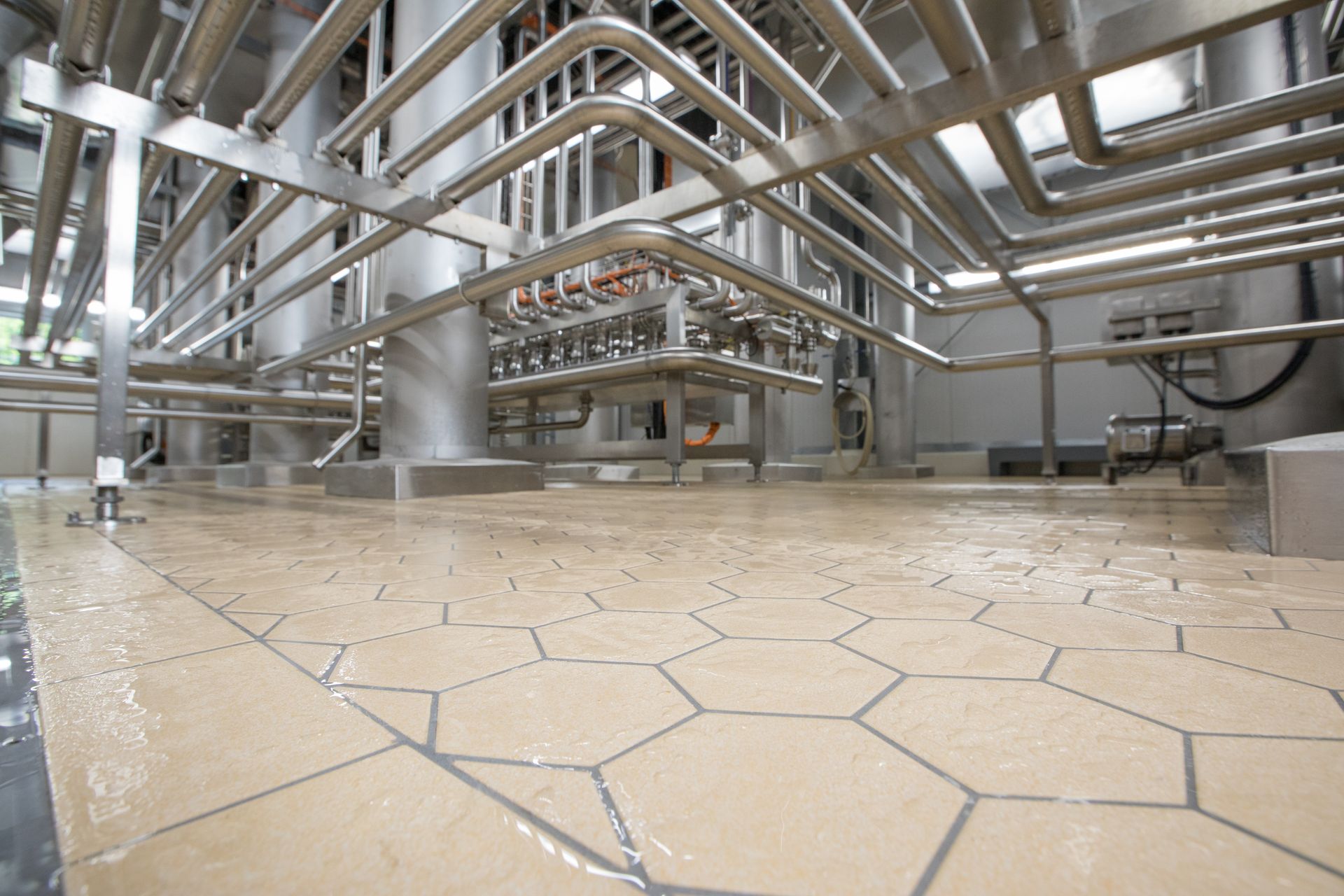Industrial Flooring: Why Cheap Isn’t Cost-Effective
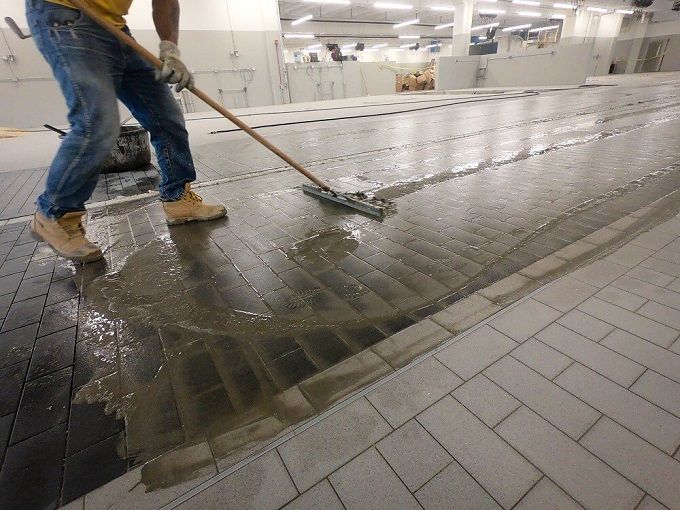
In demanding environments such as food processing plants and automotive workshops, industrial flooring plays a foundational role in performance, safety, and longevity. While opting for a budget-friendly flooring solution may seem economically appealing at first glance, the hidden costs and long-term consequences often far outweigh the initial savings. Understanding the true costs of industrial flooring means looking beyond purchase price to performance, maintenance, and lifespan. This is where premium options like Argelith’s engineered tiles provide undeniable value.
The True Cost of Cheap Flooring
Low-priced flooring materials often fail to account for the complex demands of industrial applications. They may meet basic specifications but lack the resilience required to handle heavy equipment, chemical exposure, or constant sanitation. Below are the real-world consequences of cutting costs on industrial flooring.
Early Surface Deterioration
Inexpensive tiles or coatings often degrade quickly when exposed to mechanical stress, temperature fluctuations, or aggressive cleaning agents. Surfaces begin to crack, chip, or delaminate, especially in high-traffic zones. This deterioration reduces both the floor’s visual appeal and its functional reliability, forcing early replacement well before the expected lifecycle has passed.
Frequent Repairs and Downtime
Once flooring begins to fail, patchwork repairs become a recurring expense. These fixes rarely restore full performance and often require production slowdowns or full shutdowns to complete. In facilities that operate on tight schedules, such as logistics centers or beverage plants, even brief downtime can result in substantial financial losses. The costs of industrial flooring should always account for these operational disruptions.
Safety Hazards
Substandard flooring significantly increases the risk of workplace accidents. Uneven surfaces, worn textures, and crumbling grout create tripping or slipping hazards. For sectors governed by OSHA standards, these conditions can lead to regulatory citations and liability issues. Investing in engineered flooring with high slip resistance is not just a best practice; it is a critical risk management measure.
Hygiene and Compliance Issues
In regulated industries such as food production or healthcare, cheap flooring can compromise sanitation. Porous surfaces absorb liquids and harbor bacteria, while chemically weak finishes degrade under frequent cleaning. This not only violates hygiene codes but may also trigger failed inspections and potential shutdowns. Fully vitrified, low-absorption tiles paired with epoxy grout offer a solution that upholds both safety and cleanliness.
Long-Term Impact on Business Operations
In industrial environments, even the most unassuming infrastructure choices can have major operational consequences. Flooring is no exception. Poor-quality flooring can undermine productivity, compromise safety, and lead to compliance failures. Each of these issues can directly impact your bottom line.
Damage to Equipment and Goods
When flooring begins to fail, it doesn’t just affect foot traffic. Uneven surfaces, cracks, and loose tiles create hazards for machinery and transported goods. Forklifts and pallet jacks can suffer premature wear or become unstable when navigating deteriorating floors. Vibration from uneven surfaces can also damage sensitive equipment or jostle inventory during transport. Over time, this contributes to increased maintenance on machinery and potential loss of product integrity, further driving up operating costs.
Costly Full Replacements
When initial flooring fails to meet performance expectations, spot repairs can only extend functionality so far. Eventually, entire sections must be torn out and replaced, which often involves halting production, removing equipment, and reworking the installation. This kind of overhaul is not only labor-intensive and expensive but also highly disruptive to daily operations. For facilities operating on tight schedules or regulated timelines, these delays can have far-reaching financial implications.
Why High-Performance Flooring Matters
In environments where heavy machinery, frequent washdowns, and strict safety protocols are standard, industrial flooring must do more than simply hold up, it must excel. High-performance solutions like Argelith’s engineered tiles are designed to meet the rigorous demands of modern facilities with precision, longevity, and reliability.
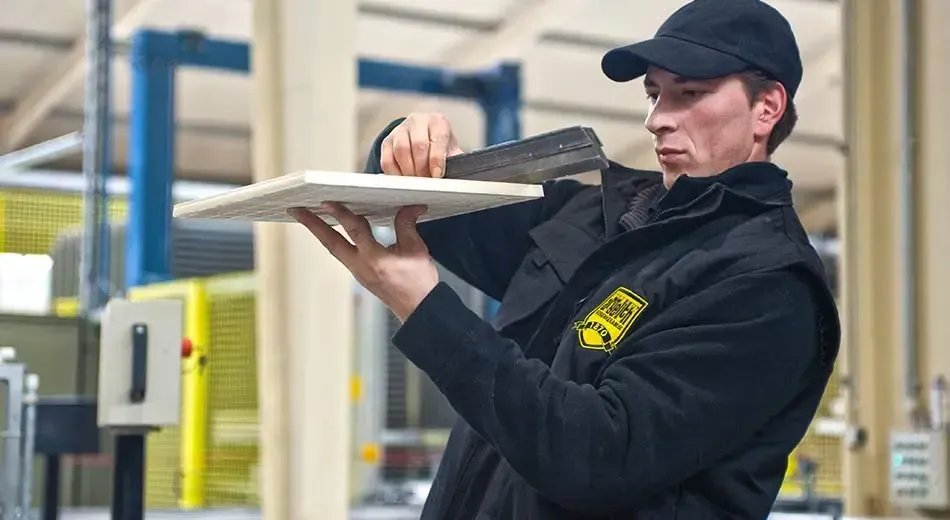
Engineering for Industrial Demands
Argelith tiles are manufactured through high-temperature firing that results in a fully vitrified structure. This engineering process makes the tiles non-porous, extremely dense, and highly resistant to mechanical stress. Whether the floor supports daily forklift traffic, resists thermal shock, or endures repeated exposure to caustic agents, Argelith tiles remain structurally sound. Their ability to prevent water seepage and resist cracking under load makes them ideal for heavy-duty industrial environments where failure is not an option.
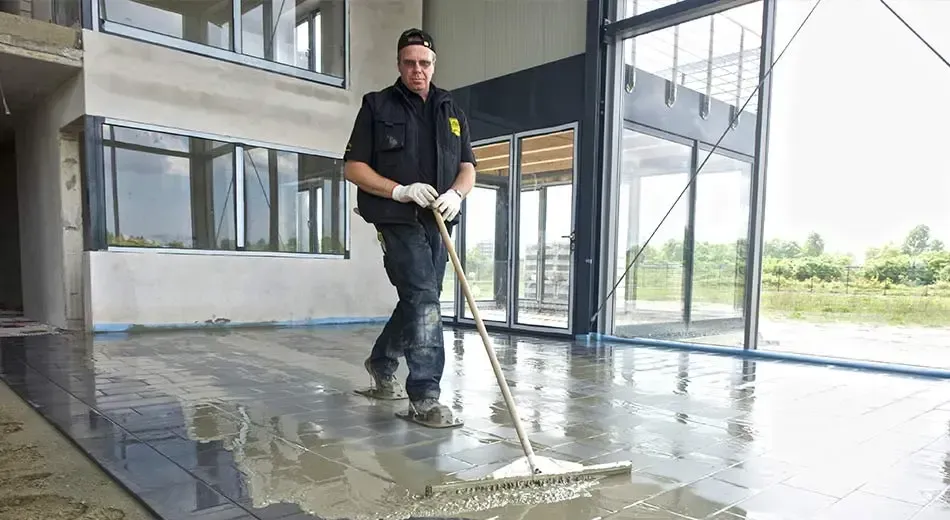
Maintenance and Cleanability
Ease of cleaning is a critical factor in both safety and operational efficiency. Argelith tiles feature ultra-low porosity, which resists staining and inhibits the buildup of grime, grease, and contaminants. This makes them particularly well-suited for food production facilities, laboratories, and manufacturing sites where cleanliness is paramount. When installed with narrow grout joints (1/16” to 1/8”) and epoxy grout, the floor surface offers minimal space for dirt accumulation and maximizes sanitary performance. The result is a hygienic, low-maintenance floor that reduces cleaning time and costs over the long term.
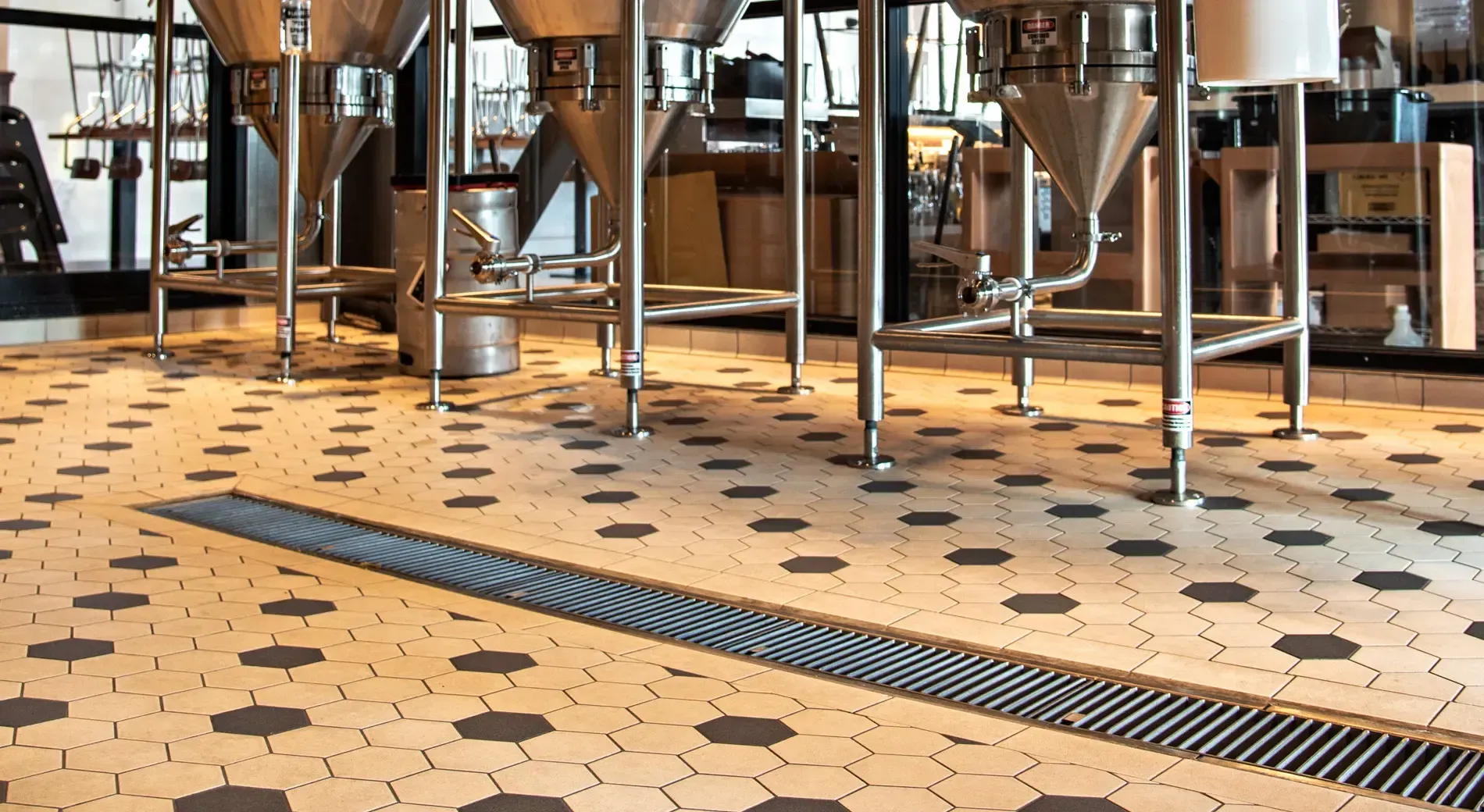
Aesthetic Appeal
In many commercial and industrial facilities, aesthetics still matter. Whether it is a client tour, a customer-facing grocery floor, or an open-concept production area, flooring contributes to the overall impression of professionalism and quality. Argelith tiles are available in a variety of color options, including Mars Red, Titan Gray, Light Gray, Anthracite, Beige, and Sand Yellow, allowing clients to maintain brand consistency while meeting performance needs. Importantly, these tiles retain their appearance under heavy use, thanks to their dense body and resistance to discoloration.
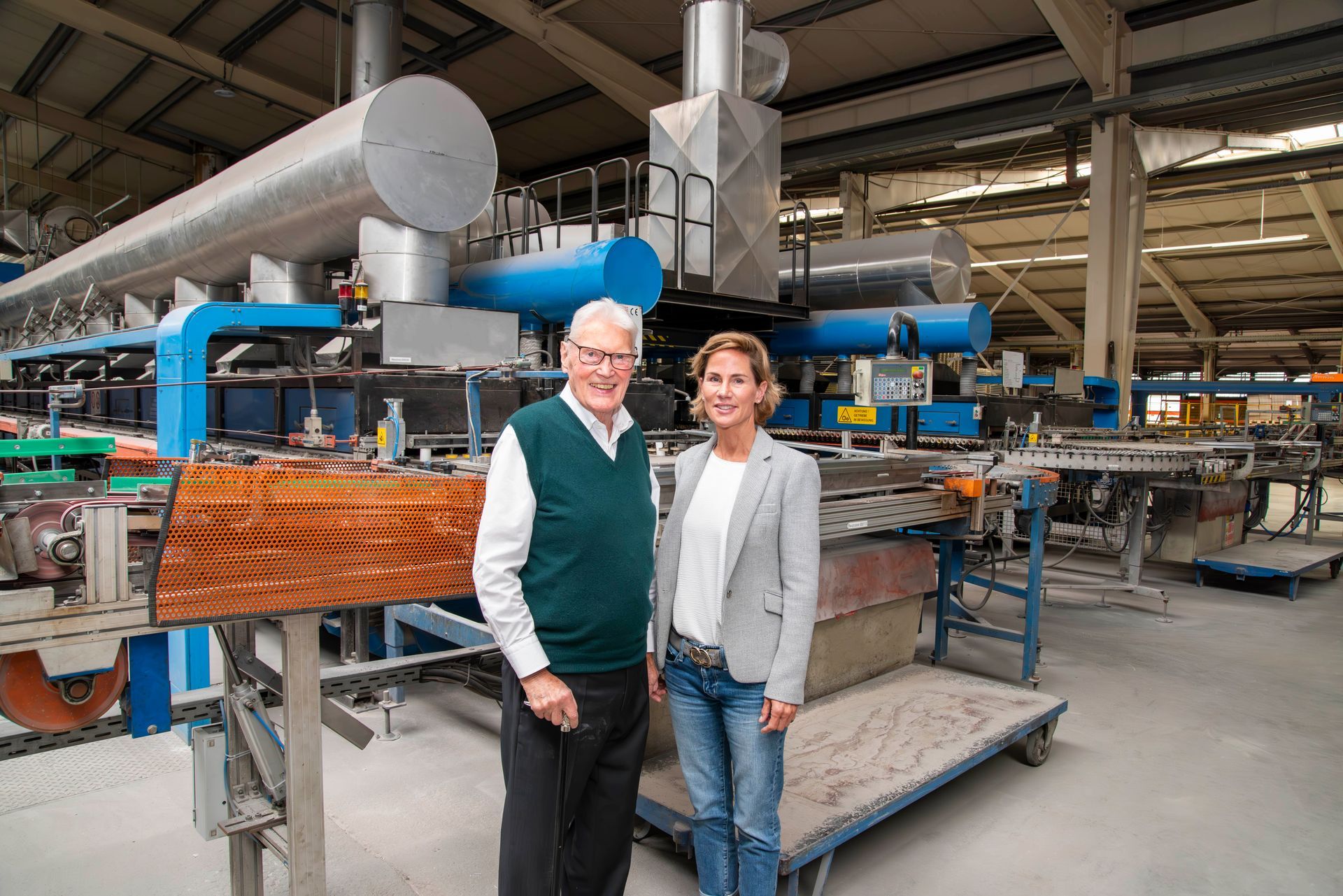
Manufacturer Warranties and Support
Selecting a high-performance tile from a reputable manufacturer also means gaining access to long-term value through service and support. Argelith provides more than just material. We offer consultative guidance, technical specifications, and ongoing assistance through a US-based support team. Our commitment extends beyond the sale, ensuring that installation practices, grout selection, and maintenance recommendations are aligned with each facility’s specific needs. With US-based warehousing, we also offer reliable delivery timelines, minimizing project delays.
The Argelith Advantage
Argelith’s legacy of German engineering brings precision and reliability to every project. Our ceramic tiles are not off-the-shelf
products. They are engineered solutions, tailored to meet the unique demands of various industries.
Industry-Specific Solutions
- Automotive workshops: Designed to withstand constant rolling loads and oil spills.
- Food production: Hygienic, easy to clean, and resistant to acids and sanitizers.
- Retail and grocery: Maintains a clean, polished look even under daily foot and cart traffic.
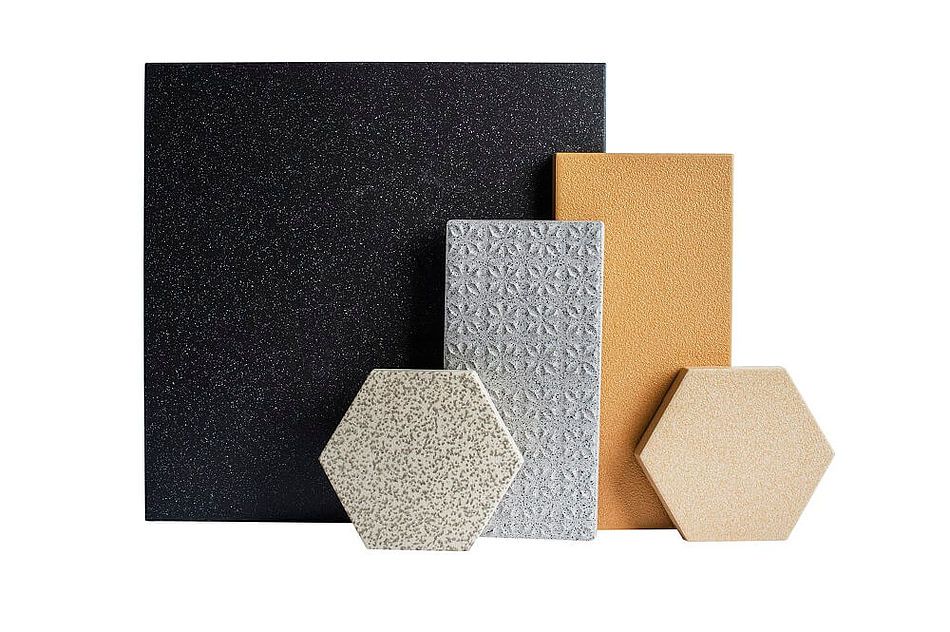
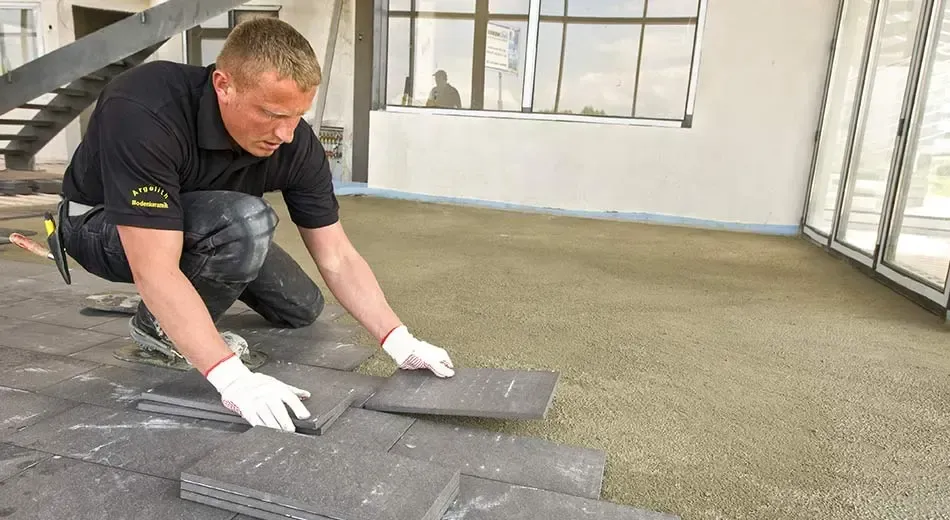
Flexible Installation Options
Argelith tiles can be installed via thinset or vibration installation, offering flexibility depending on the project requirements. The company works closely with qualified installers to ensure optimal results. Argelith emphasizes the importance of experience in achieving a high-performance outcome.
U.S. Warehousing for Faster Delivery
With domestic warehousing in the United States, Argelith minimizes lead times and enhances project scheduling efficiency. This logistical advantage reduces wait periods and helps clients keep construction timelines on track.
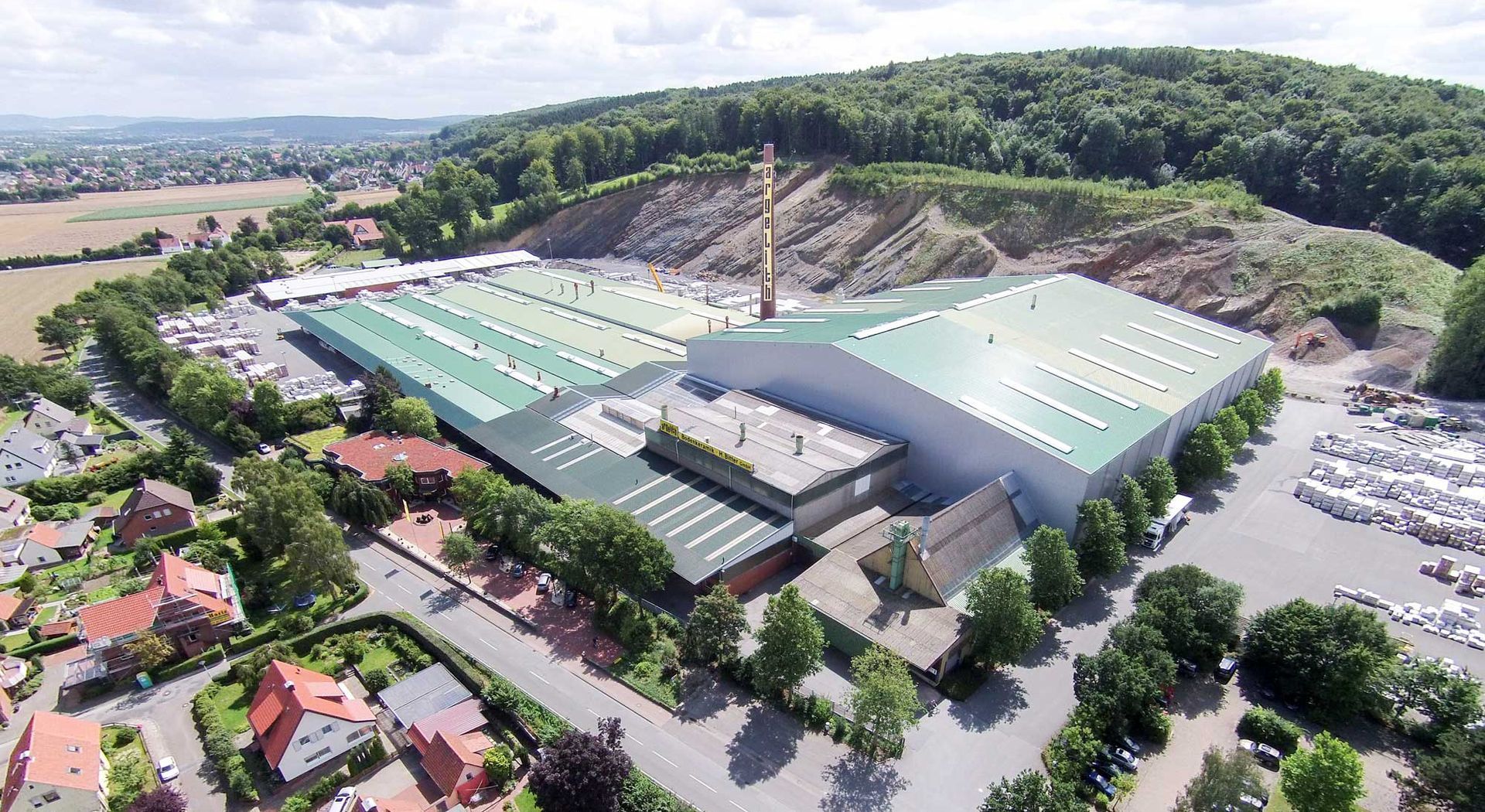
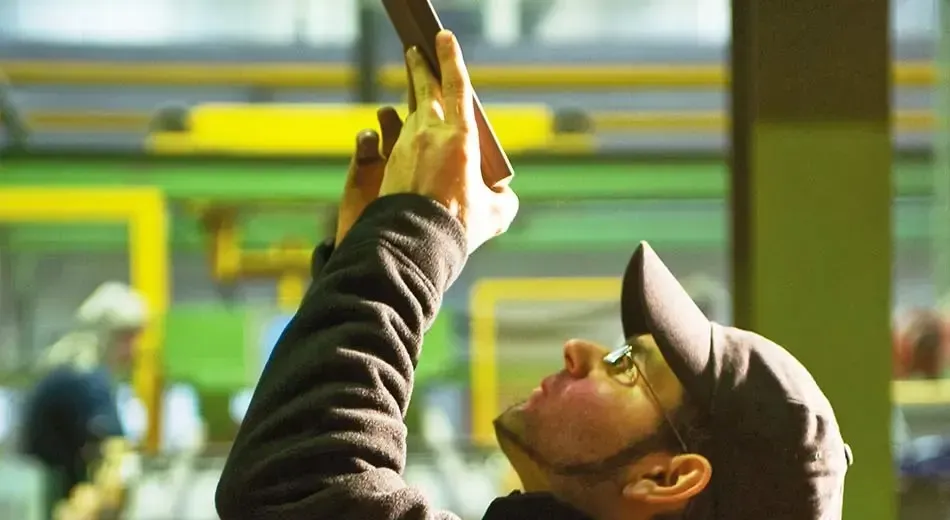
Commitment to Quality and Support
Argelith doesn’t just supply tile. We support every phase of the project. From consultation to post-installation guidance, our US-based support team helps ensure each project achieves its goals in performance, safety, and durability.
Key Takeaways
- Cheap flooring often leads to high lifecycle costs due to early failure, safety risks, and hygiene issues.
- The costs of industrial flooring go beyond the initial purchase price. They include maintenance, downtime, safety, and compliance.
- High-performance flooring, such as Argelith’s engineered tiles, delivers long-term value through superior durability, slip resistance, and low maintenance.
- Argelith offers tailored solutions backed by German engineering, optimized for various industrial and commercial applications.
Request a consultation with Argelith to explore flooring options that meet your industry’s performance and compliance needs.
Disclaimer: This article is provided for general informational purposes only. While Argelith makes every effort to ensure accuracy, the information may not apply to your specific facility or project. Please consult with qualified professionals and review our technical documentation before making decisions about your flooring system.

